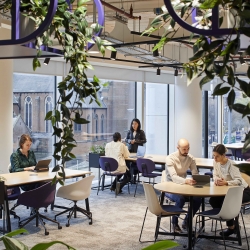May 10, 2023
Majority of employees see themselves as cogs in corporate machinery
 A significant majority (85 percent) of employees feel like they are just a cog in the machinery of their organisation and 43 percent have no idea how their performance contributes to business success, according to a new survey of employee experience and expectations. According to the new study [registration] from Oracle, HR leaders are struggling to keep up with changing employee expectations and this can have dire consequences for businesses. The survey of 1,000 employees and HR leaders across the United Kingdom (UK) found that despite current economic uncertainty, worker expectations are higher than ever, and HR leaders need help to get the employee experience right or risk losing profits and market share. (more…)
A significant majority (85 percent) of employees feel like they are just a cog in the machinery of their organisation and 43 percent have no idea how their performance contributes to business success, according to a new survey of employee experience and expectations. According to the new study [registration] from Oracle, HR leaders are struggling to keep up with changing employee expectations and this can have dire consequences for businesses. The survey of 1,000 employees and HR leaders across the United Kingdom (UK) found that despite current economic uncertainty, worker expectations are higher than ever, and HR leaders need help to get the employee experience right or risk losing profits and market share. (more…)























 Following last week’s announcement of the annual BCO Awards winners for London, the British Council for Offices has announced the winners of its annual Awards for the North of England. In fact all but one of the winners are located in Greater Manchester and the one that isn’t lies within twenty miles of it. The organisers suggest that the theme of sustainable office design runs through the submissions of the winning entries.
Following last week’s announcement of the annual BCO Awards winners for London, the British Council for Offices has announced the winners of its annual Awards for the North of England. In fact all but one of the winners are located in Greater Manchester and the one that isn’t lies within twenty miles of it. The organisers suggest that the theme of sustainable office design runs through the submissions of the winning entries. 












April 24, 2023
Reconnecting older workers with the office: have we retired what matters most?
by Julie Lecoq • Comment, Flexible working, Workplace design